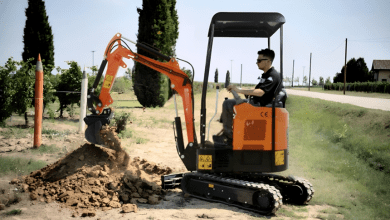
In the rapidly evolving world of digital marketing, keeping pace with the latest trends and technologies is crucial for staying competitive. SEO, a cornerstone of online visibility, is undergoing a transformation with the rise of automation. Automating various aspects of SEO not only streamlines workflows but also enhances the accuracy and efficacy of content optimization strategies. In this article, we will delve into the power of leveraging SEO automation for content optimization, offering insights and actionable tips to keep your online presence ahead of the curve.
Exploring Tools and Platforms for SEO Automation
There is an array of tools and platforms designed to automate various aspects of the SEO process. From all-in-one suites that cover every stage of SEO to specialized tools focused on specific tasks, options abound for digital marketers. These tools can offer functionalities such as automated site audits, backlink analysis, and content recommendations based on search engine algorithms.
SEO software like SEMrush and Ahrefs has become essential for many marketers, providing powerful analysis and tracking capabilities. These platforms harness large datasets and offer predictive insights, helping users to identify potential SEO opportunities and threats. For example, they can pinpoint which keywords are likely to deliver the best ROI, allowing content creators to focus their efforts where it counts the most.
When discussing SEO automation, it’s important to spotlight platforms that offer both efficiency and precision. Integrating an Otto SEO solution can dramatically enhance automation processes by streamlining the most labor-intensive SEO tasks. By choosing the right mix of tools, marketers can build a robust and responsive SEO ecosystem that drives better content optimization outcomes.
Integrating SEO Automation Into Your Content Strategy
Incorporating SEO automation into your content strategy can be transformative if approached thoughtfully. The first step is to identify which elements of the SEO process are most time-consuming or require frequent updates. Typically, keywords and meta-data generation, competitor analysis, and link building are areas ripe for automation due to their repetitive nature and the need for up-to-date information.
Once the areas for automation have been established, the next phase involves setting up workflows that allow tools to feed into content creation seamlessly. Automating the research phase, for instance, means that writers and editors have immediate access to a curated list of trending topics and keywords that they can use to craft relevant and engaging content.
It’s crucial to ensure that SEO tools are configured in line with your content goals. For example, if the focus is on generating local traffic, ensure that your automation tool is set up to track and analyze local search data. Alignment between tools and objectives guarantees that automation contributes positively to the overarching content strategy.
The Impact of Artificial Intelligence (AI) and Machine Learning on SEO Practices
The introduction of AI and machine learning into SEO is revolutionizing the way marketers approach optimization. These technologies enable the analysis of vast datasets beyond human capacity, revealing insights into user behavior and search engine patterns that were previously inaccessible. As a result, SEO practices have become more sophisticated and predictive, capable of anticipating changes in the search landscape.
AI-driven SEO tools can personalize content recommendations at an individual level by understanding the nuances of user intent. This level of personalization not only enhances user experience but also significantly improves conversion rates. By engaging with content that feels tailor-made, users are more likely to stay on a site, reducing bounce rates and signaling quality to search engines.
Measuring the Success of Automated SEO Efforts
While automation can provide a competitive edge in SEO, measuring its success is vital to validate the investment in these technologies. Key performance indicators (KPIs) such as organic traffic, search engine rankings, and click-through rates (CTR) offer quantifiable data points to assess the effectiveness of automated tactics. Consistent monitoring of these KPIs serves as a benchmark for future SEO initiatives.
Furthermore, understanding the user journey from initial interaction to conversion is essential in evaluating SEO automation. Tracking conversions and attributing them to specific SEO activities helps in determining which automated processes are driving tangible results. Tools that offer detailed reports and conversion tracking can pinpoint successful elements within a broader strategy.
Overall, by harnessing the power of SEO automation, businesses can optimize their content more effectively, ensuring it reaches the right audiences with precision and scale. Automation can significantly increase efficiency, enabling a strategic focus on creativity and personal touch—the elements that set great content apart. As SEO continues to evolve with the advent of AI and machine learning, those able to integrate automation intelligently into their digital marketing strategies will likely find themselves leading the pack.




